
Ever wonder about our process? Or what anecdotes didn’t make the story? Join our newsletter for a peak behind the curtain.
In high school in the late ’90s, Nick Baumgartner watched the Winter X Games and let his mind drift as he witnessed Shaun Palmer win boardercross gold year after year.
Now recognized by the U.S. Ski and Snowboard Hall of Fame as “the heart and soul of snowboarding in its infancy,” Palmer was living the dream. He sang in a punk band. He lived way out loud in his sequins and plaid. And hell yes, he got paid to snowboard.
“Most people would look at how lucky that guy is,” Baumgartner says. “I looked at it like, I wonder if I could beat that guy.”
To find out, he’d have to do some figuring out. Boardercross and the Winter X Games were forever away from Iron River, his hometown of 3,000 in Michigan’s Upper Peninsula, just across the Wisconsin border. How could he get from there … to there? Such a gulf only sweetened the appeal.
“I didn’t have the resources or mentors to ask,” he says, “so I had to get creative.”
That creativity put him on the path to four Olympic Winter Games, a gold medal at age 40 and, he hopes, a spot at the Milano Cortina Games in 2026.
It wasn’t just Palmer that drove Baumgartner. With three older brothers who were stud athletes at everything they did, he didn’t have much of a chance to be the family’s first or best in traditional sports.
“It became an obsession to beat my brothers in something. That’s what took me to the Olympics. Not only do they look out for you when you’re in trouble, but they beat the crap out of you, too. Getting beat up and pushed around set me up for success. I think it’s safe to say I’m the best snowboarder in the family,” he says with a laugh.
Snowboarding started out as a fun way to handle winter when Iron River’s high temperatures hover in the low- to mid-20s, and lows hit somewhere around zero, plus or (often) minus.
The local hill, Ski Brule, was just 10 minutes away, and its 11 lifts, 17 trails and 400 feet of vertical offered enough terrain to embrace the elements.
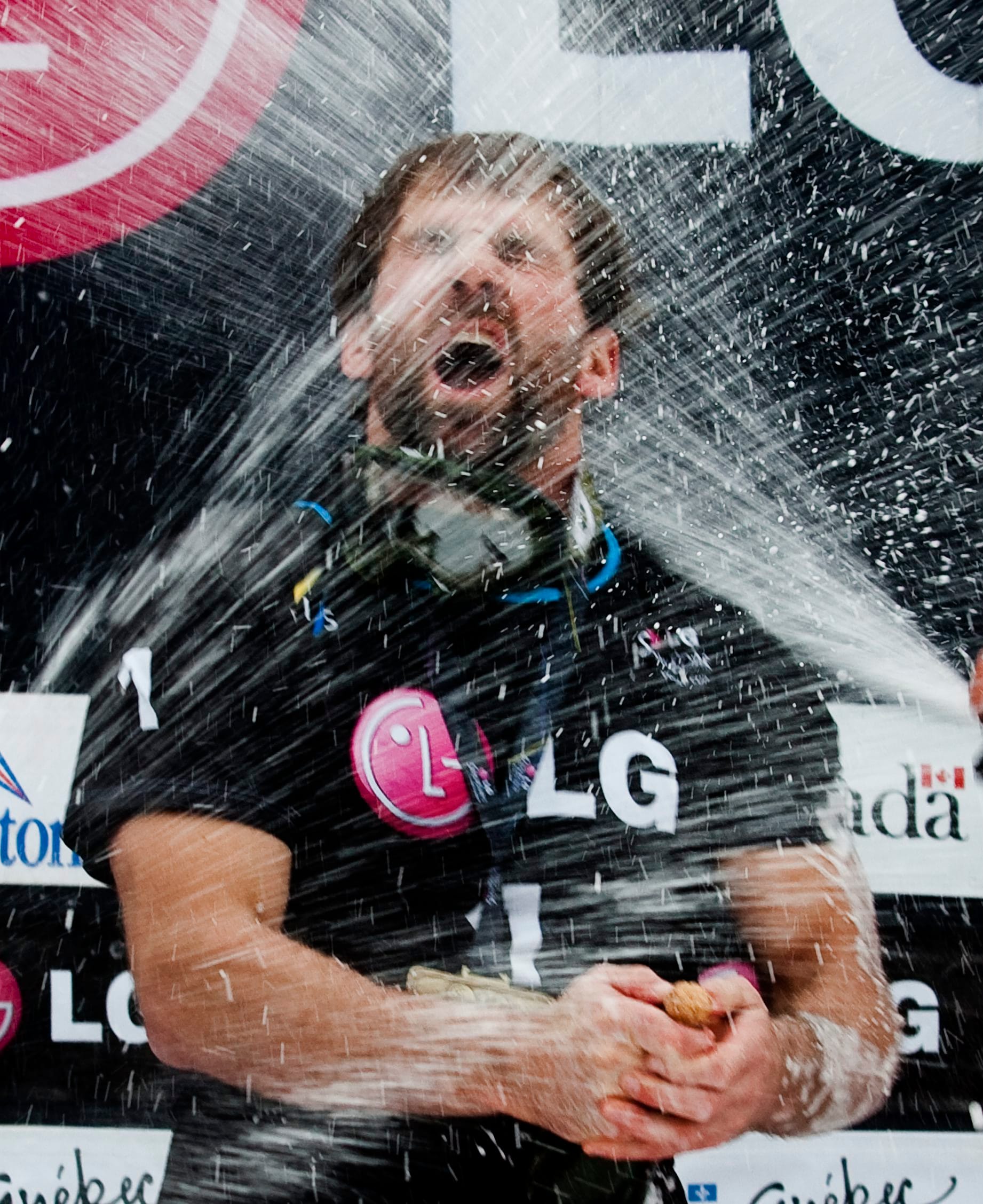
“For me, it was, find something fun to do and enjoy it or freeze your butt off. Snowboarding was my way to enjoy the cold.”
He went out on weekends, Wednesday, and Friday nights when the resort stayed open after dark. Run after run, he got more and more hooked.
During his junior and senior years, he even competed in regional events organized by the United States of America Snowboard and Freeski Association (USASA) — for many, the first step in the Olympic pipeline. He qualified for nationals in Telluride, Colorado his junior year and in Waterville Valley, New Hampshire his senior year. In both years, travel costs kept him home.
He played traditional sports, too, and in fact, followed in his brothers’ all-star footsteps. He was a state silver-medalist hurdler, a state champion wrestler, and an All-State football player.
And after graduating from high school in 2000 — one of a dozen kids in his class — he went on to play football at Northern Michigan University. It soon became clear that he was, as he phrases it, too immature for college. Sure, he went to every practice and competed as hard as he could in football, but without rules and structure for everything else, he veered more toward fun than study.
That was that: “I got a letter from the dean that I wasn’t welcome back and needed to figure it out.”
With football over and a return to Iron River, Baumgartner needed something to fill the competitive void. He’d never not competed. Slow-pitch men’s softball wasn’t going to cut it.
So he did what anyone would do: started hatching a life plan.
“The next best thing was to be a professional snowboarder. I’ve always been about living with as little regret as possible, so why not give it a try?”
He applied for a job at Ski Brule and started doing the same USASA events he’d done in high school. Sure enough, at 20 years old, he again qualified for nationals. This time, the event was in Mammoth, California, and he had the money to go.
“I thought, this is it. I’m gonna find a way to make that a job.”
Up to that point, he’d traveled as far as Wisconsin and Minnesota and had never raced an actual boardercross, also known as snowboard cross, where four to six snowboarders race each other out of a gate and along a 1-kilometer undulating course with turns, bumps and jumps.
It’s about smart lines and speed. The fastest time wins, and snowboard cross is fast. Fun fact: The fastest recorded athlete in snowboard cross was 96 kilometers per hour — almost 60 miles per hour.
Baumgartner made it to Mammoth, and things started to get real on the chairlift up the mountain.
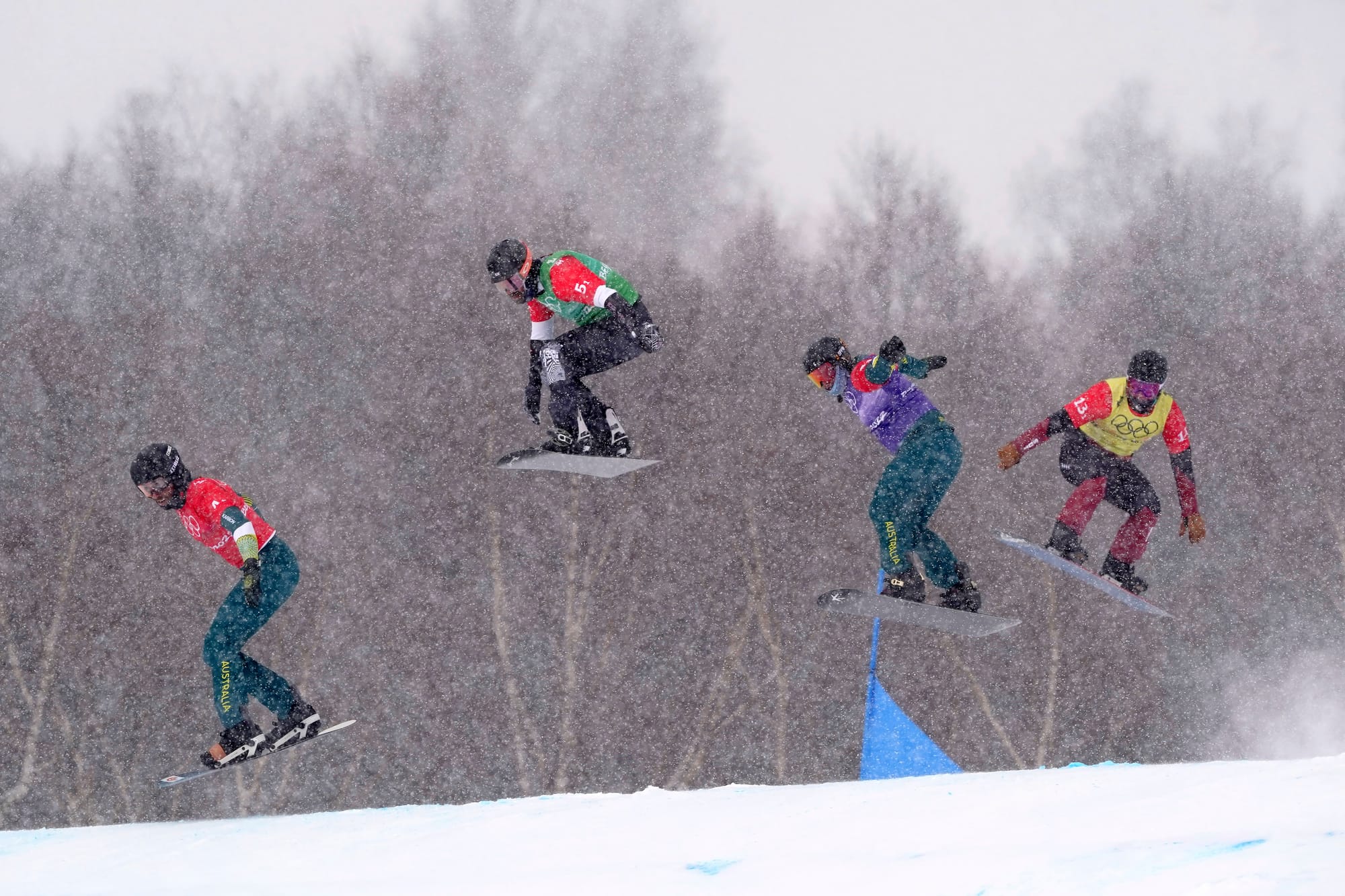
“I was shaking. I’m looking at these jumps and terrified, thinking, I need to get rid of these nerves. This isn’t bigger than me.”
Then on the biggest jump, he spun right, drifted left … and wrecked, knocked himself straight out.
Though he was in pain for days, he powered through more competitions. It wasn’t until the end of the week that he had his first boardercross race and everything clicked. The head-to-head competition felt natural, and he made it to the small final — for racers who’d made it all the way to the semifinals but finished in the bottom half.
That only affirmed his conviction to keep going.
But to finish in the top half and make the pro ranks, Baumgartner knew he needed more experience, more races. He made a plan to move to Colorado in November 2003 and rent a room from the mother of a friend he’d made at nationals.
Two weeks before he was set to leave, he found out he was going to be a father. (His son, Landon, is now in college.)
“Luckily, his mom is like, ‘There’s no way you’re not going.’ We figured it out. It was amazing for her to do that.”
Baumgartner traveled to compete for a month, returned for a month over Christmas, then left to compete for another couple of months. He won two races and — there it was — an invitation to the Winter X Games. He was starting to get traction.
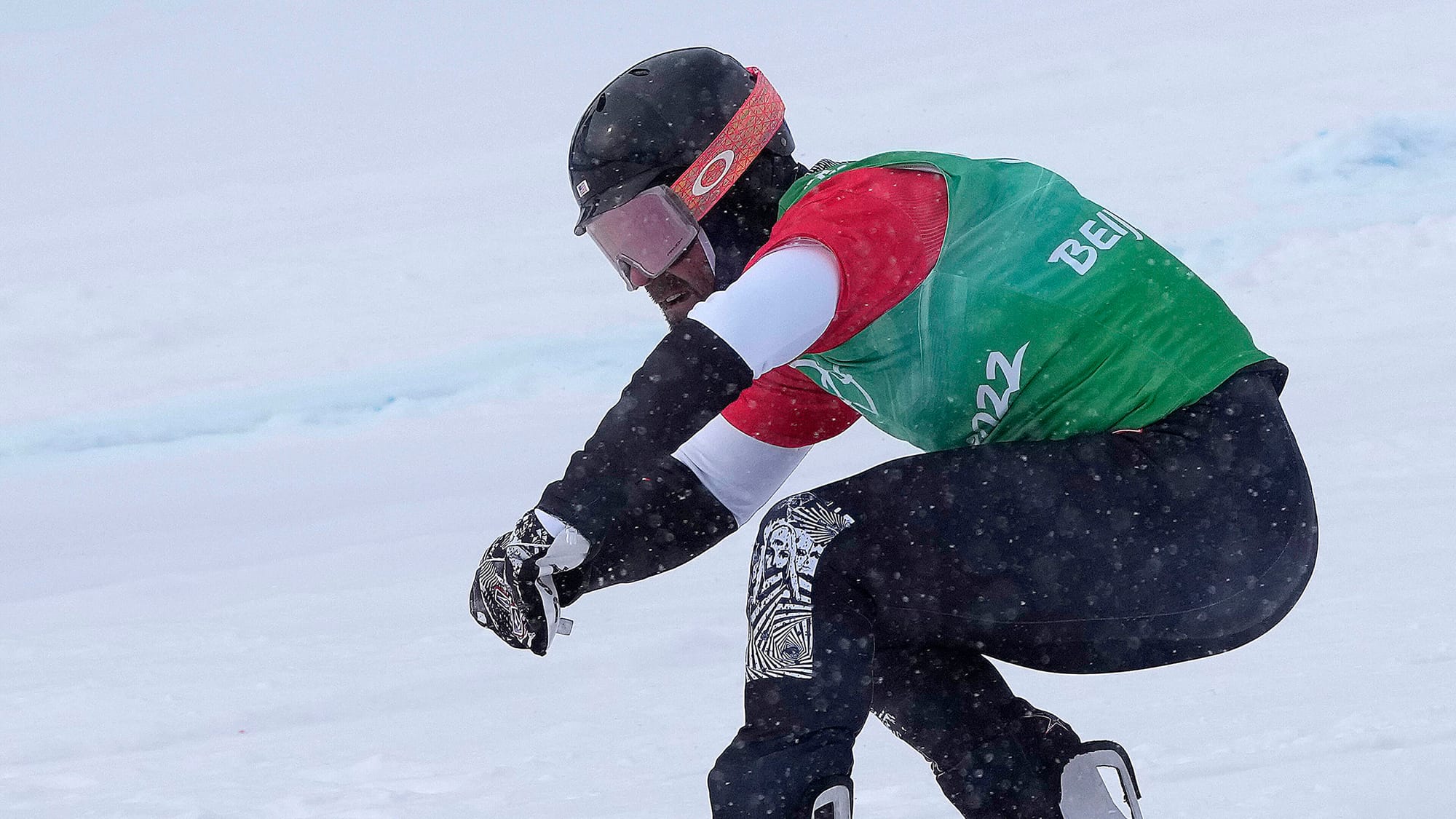
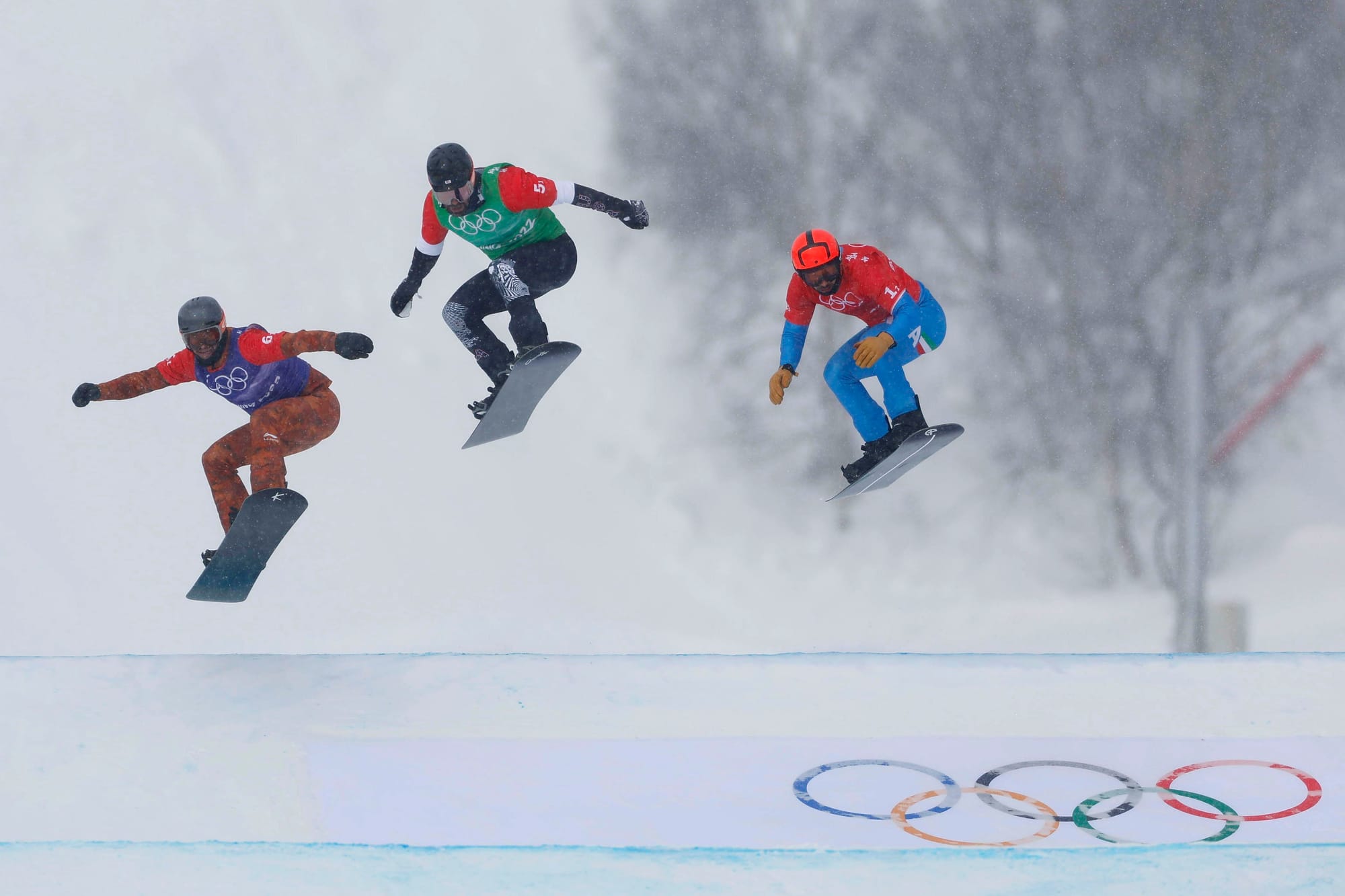
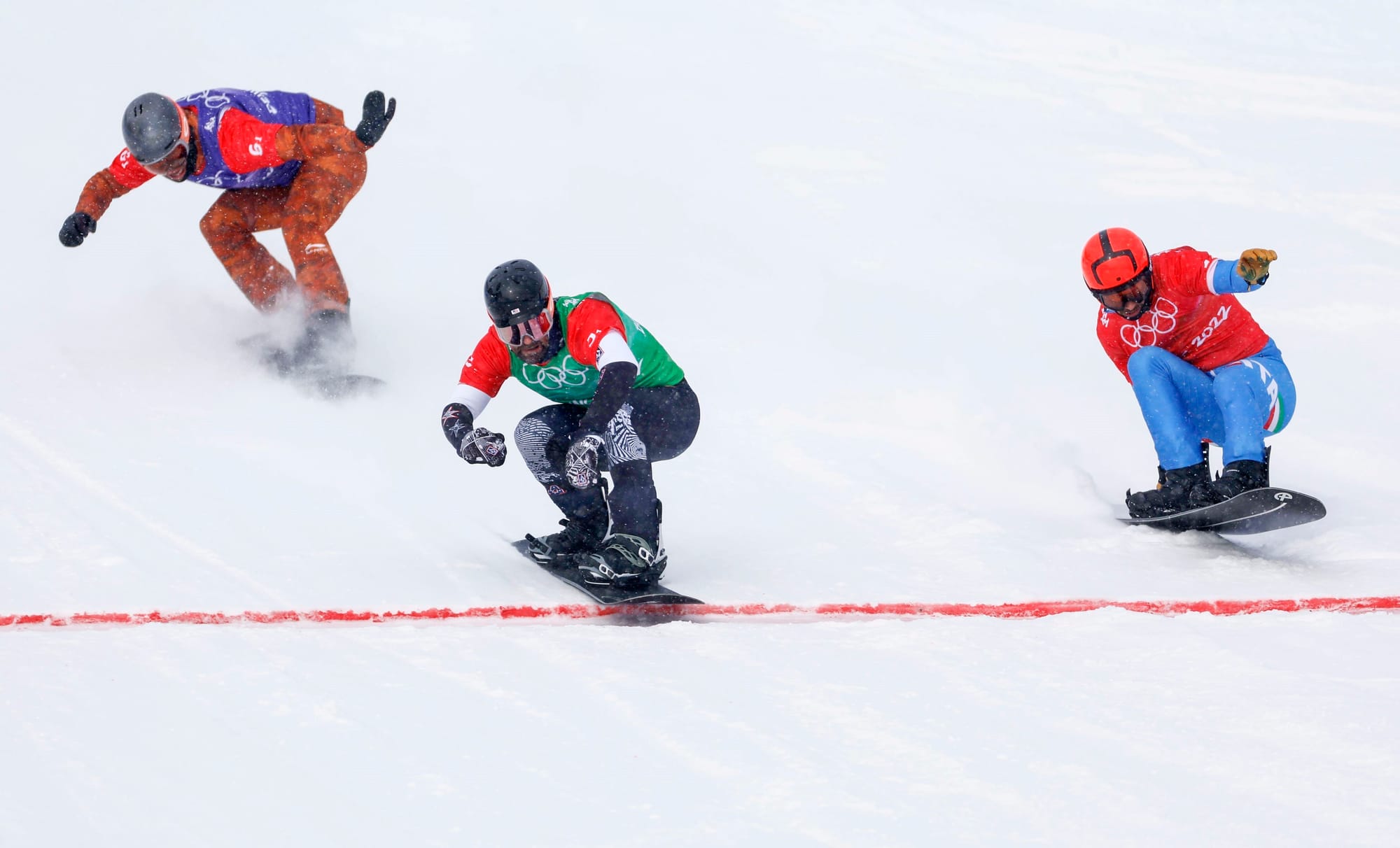
The margin for gold was small, but Baumgartner crossed the finish line just inches ahead of his nearest competitor. [AP photos]
To keep it going, he became a union concrete laborer during the summers, which paid well enough to help fund his winters, and it all just started to, well, stick. More racing opportunities came, and he continued to seek them.
One time, he drove his 2000 Mitsubishi Eclipse 39 hours to Mt. Bachelor, Oregon without much of a plan beyond racing.
“On the way there, my mom let my aunt in Portland know what I was up to and was like, ‘There’s no chance you’re sleeping in the parking lot.’”
There’s no doubt he would have if that’s what it took, but his aunt got him a hotel room and let him use her Forerunner to get to the mountain safely. Once there, he remembers overhearing a coach tell his athletes to stay away. Too reckless, the coach said.
“It’s true I had no idea what I was doing. I had no training, no coaching. But I was hungry and I wanted it, and I just kept showing up.”
He was also noticed.
In June 2005, he’d just started a new job when he got a pivotal call: an invitation to the U.S. National Team camp in Mammoth later that month — a chance to make the Olympic team. It was day three of his new job, and he had no money to make the trip.
“I had to go in and say, guys, I’ve got a problem.”
Not only did they let him keep his job, but they also gave him a week off and advanced him $1,100.
“They said, ‘You’re gonna go to camp, and then you’re gonna come back.’ I have to imagine it’s the Midwest way.”

He made the C team, which afforded him coaching and a uniform but not the points to qualify for World Cups. It was a start. But if he was ever going to race in World Cups and have a shot at the Olympics, he needed to make the A team.
He busted his butt to improve his skill on the course and make that team, and he left no stone unturned to raise money for expenses, even using the yellow pages to cold call local businesses.
“I told them what I wanted to do, and if they had any funds they could help me with this journey, I’d be very grateful. I only raised like $2,000, but it gave me a lifeline and showed me other people believed in what I was trying to do.”
He won the U.S. SBX Championships in Tamarack, Idaho in 2007 and his first World Cup in Lake Placid the next year. And after a handful of top 10 finishes in 2009, he was named to the 2010 Olympic team — the final selection to the team, just beating out his idol, Shaun Palmer.
Of course, making the team creates a whole new set of dreams, or at least makes existing dreams less abstract. Suddenly, the podium, the anthem, the medal are all tangible and that much closer.
Baumgartner was 28 for the 2010 Vancouver Games. He finished 20th but soaked up the pageantry and magic of the moment.
At the 2014 Sochi Games, he was hungry and half expected himself to medal. When he finished fourth in the first round, just missing the cut for the quarterfinals, he was “devastated.”
At the 2018 PyeongChang Games, he finished fourth overall. It just doesn’t get any closer.
“Being fourth best in the world is pretty good, but in the Olympics, it’s not. It leaves you feeling like a failure. I wanted to bring hardware home to the small town that helped me get there.”
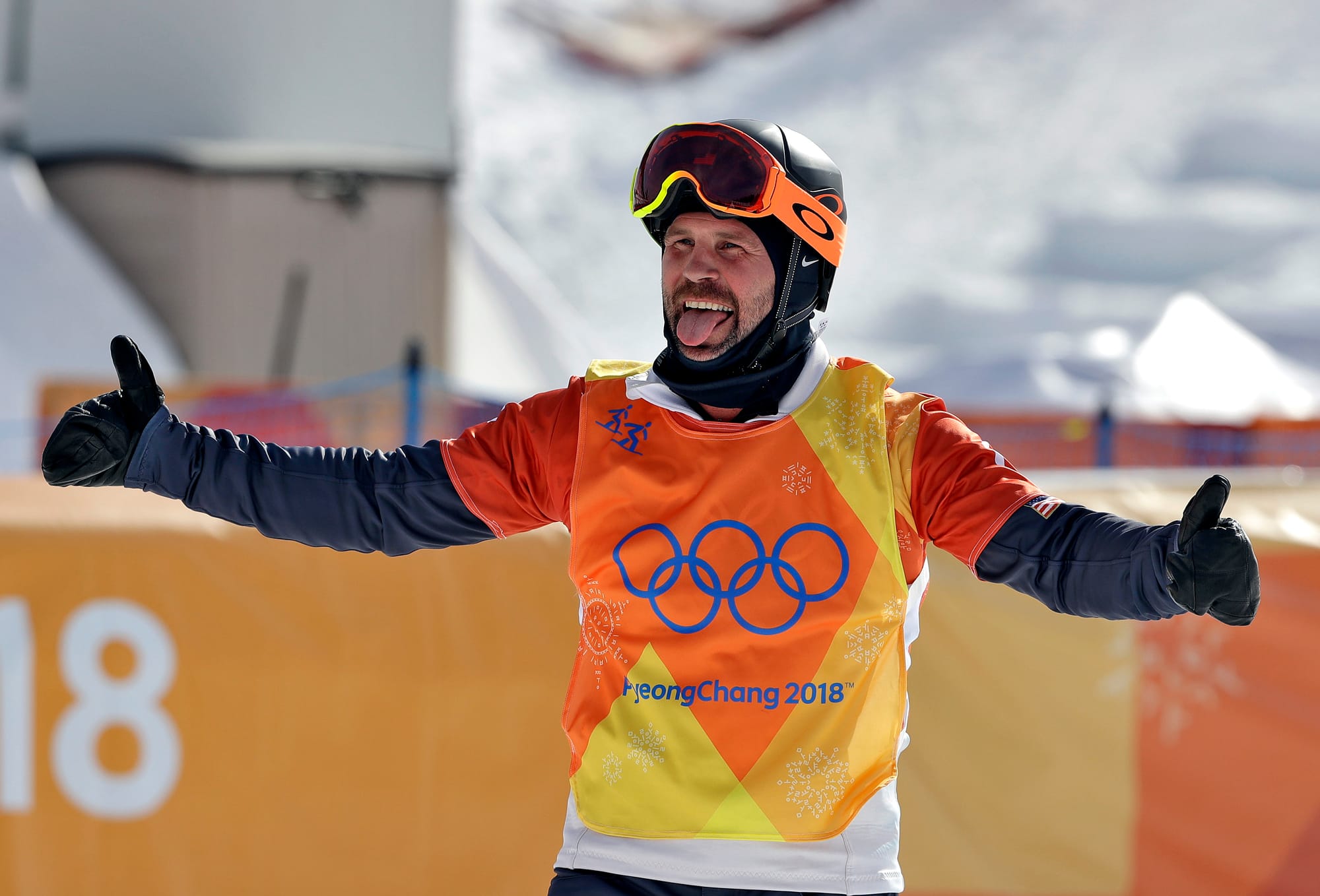
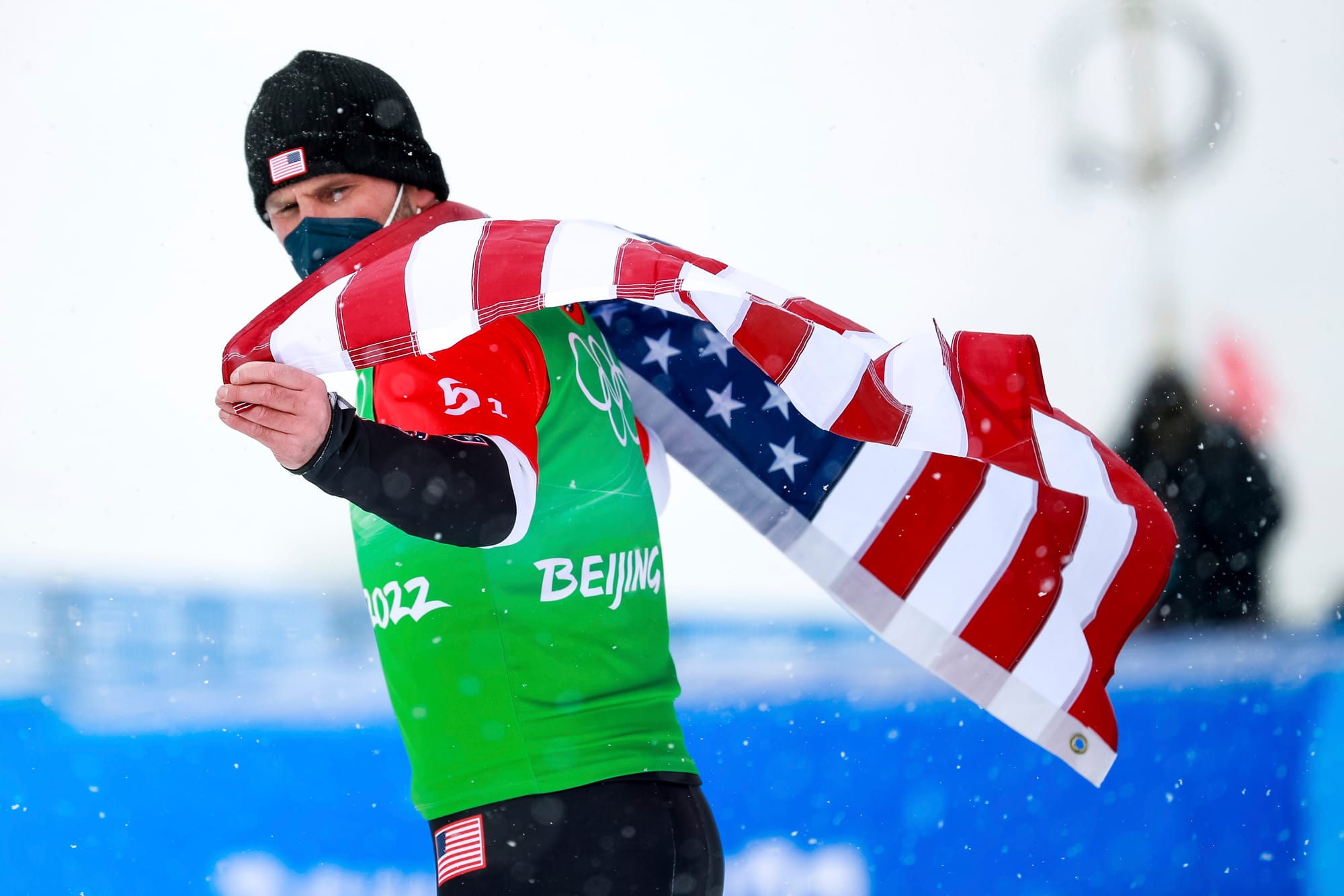
His larger-than-life personality has made Baumgartner a favorite among teammates and fans. [AP photos]
Was he really going to try again in 2022 at the Beijing Games? At age 40? A new event — the snowboard cross-mixed team — would be his chance.
In that event, each team consists of a man and a woman. The men race each other down the snowboard cross course first, and then the women begin their race with a staggered start based on how their teammates finished.
After a breathtaking mid-air pass to move into first place, Baumgartner finished 0.04 seconds ahead of the second-place finisher, so his teammate Lindsey Jacobellis’s starting gate opened 0.04 seconds ahead of her Italian opponent.
And the finish? Jacobellis flew across the finish line just 0.20 seconds ahead of Team Italy. Gold.
He had showed up once again. “My goal was to go and make some noise and prove everybody wrong. To have it play out like it did is incredible.”
Baumgartner carries his medal with him at all times, not just as a talisman for himself but for anyone he meets. He wants people to touch it and hold it and absorb its energy.
“You hand it to a kid and see their eyes wide and the possibility, ‘I can do this. Anything’s possible.’ Or even people my own age are like, ‘I’ve got no excuse. I’m gonna go get what I want.’”
Baumgartner’s still getting after it, too. At January’s Snowboard Cross World Cup in St. Moritz, he was the oldest competitor in the 32-racer field by eight years and finished fifth.
The next U.S. finisher is 17 years younger and finished 15th overall. Baumgartner is well aware of the full-circleness of it all. Was it really 25 years ago that he was a young gun coming for Shaun Palmer?
He embraces the role of both veteran teammate and ripe target.
“There’s nothing worse to a young kid than being beat by an old man. Do they push me? Yes. At the same time, I tell them, if you need help, ask me. I’m always open and here to help. And if I make you faster, I’ve gotta work harder to beat you.”
Advertising and sponsorship opportunities are available. Contact Jim Hoos at jhoos@r1s1sports.com or 602-525-1363.